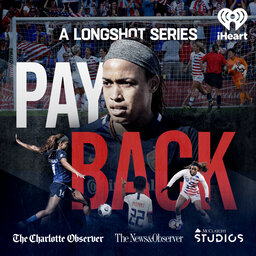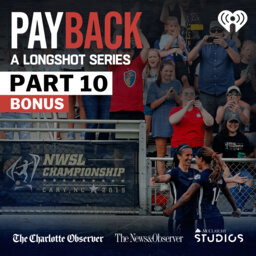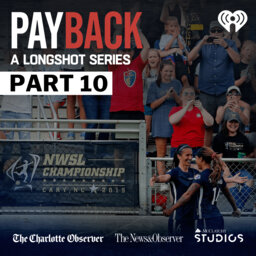Content warning: This episode contains adult language and adult themes, including sexual coercion and emotional abuse. If you or anyone you know is facing these issues, help is available through RAINN, the nation's largest anti-sexual violence organization. Visit RAINN.org, or call their hotline: 800-656-HOPE.
As listeners heard in Part 6 of Payback, the women’s sports world has been shaken in recent years by repeated allegations of sexual and emotional misconduct by men in positions of power. In this extended interview, Dr. Tanya Prewitt-White, a sport psychologist and author of Examining and Mitigating Sexual Misconduct in Sport, speaks with Alex Andrejev and Kata Stevens about the complex dynamics in the coach-athlete relationship, how athletes today are redefining their roles as advocates, and how to foster the transformative dialogues necessary for equity and progress in sport and society.
New episodes coming each Tuesday, through May 17.
To continue supporting journalism like this, visit charlotteobserver.com/payback or newsobserver.com/payback .
Payback is hosted by Alex Andrejev. It's produced by Kata Stevens, Casey Toth, Julia Wall, and executive producer Davin Coburn. The executive producer for iHeartRadio is Sean Titone.
 Longshot: Payback
Longshot: Payback


